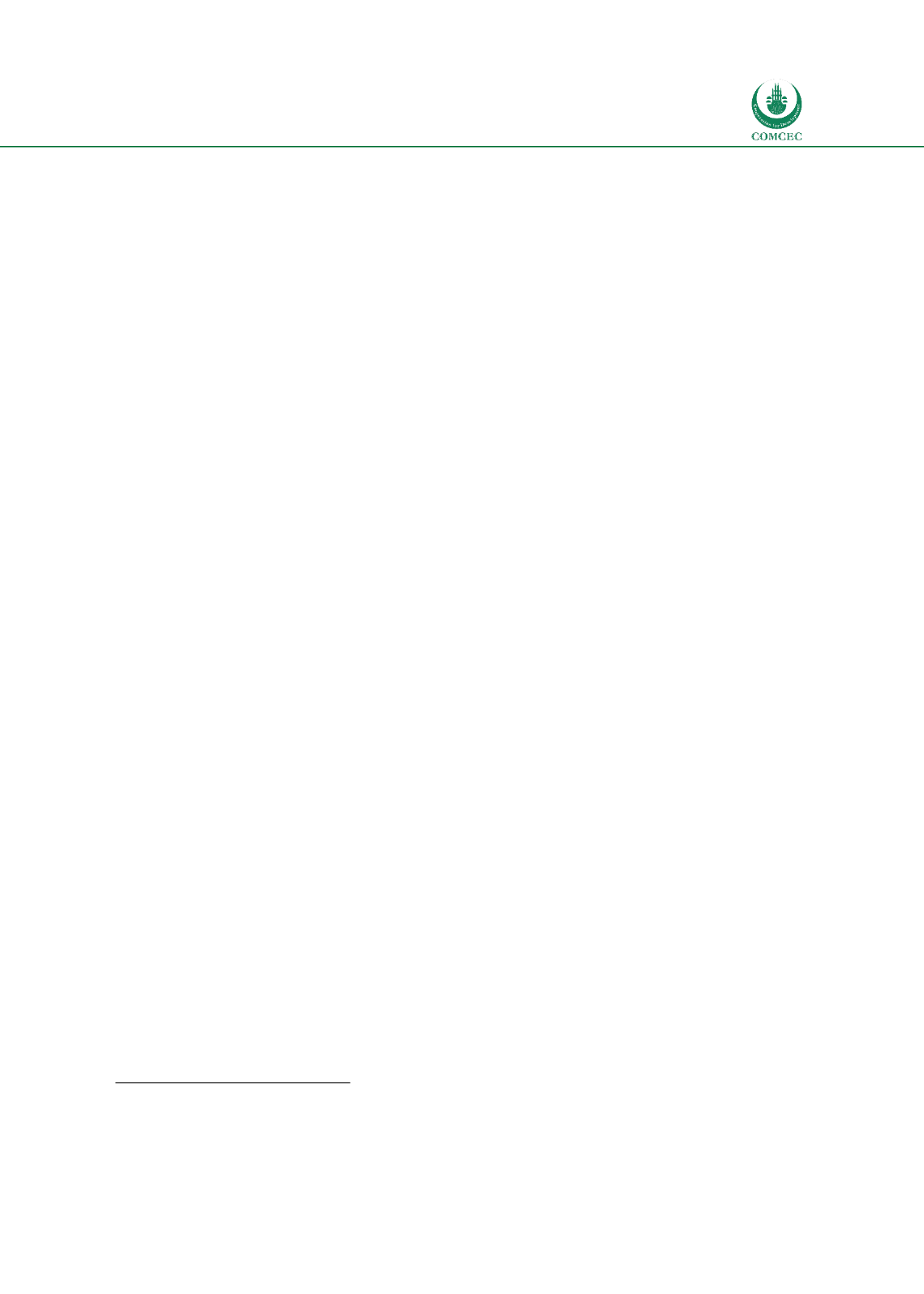

National and Global Islamic Financial Architecture:
Prolems and Possible Solutions for the OIC Member Countries
53
Bahrain is the only rating agency that rates the
Shariah
quality rating of Islamic financial
institutions but has not ventured into rating Islamic securities and sukuk.
3.6. Consumer Protection Architecture
3.6.1. Consumer Protection and Financial Literacy Scheme
Since the lack of financial literacy and safeguards to protect consumers were among the factors
contributing to the recent financial crisis, there has been renewed interest in a robust
regulatory framework to enhance consumer protection after the recent GFC. Recognizing this,
the G20, along with the OECD came up with the
G20 High-Level Principles on Financial
Consumer Protection
in 2011 which identifies 10 broad principles that can enhance the
protection of financial consumers. These are: legal, regulatory and supervisory framework;
role of oversight bodies; equitable and fair treatment of consumers; responsible business
conduct; disclosure and transparency; financial education and awareness; protection of
consumer assets against fraud and misuse; protection of consumer data and privacy;
complaints handling and redress; and competition (OECD 2011).
Similarly, the World Bank came up with
Good Practices for Financial Consumer Protection
in
2012 and it identifies the key features of practices to protect consumers of the banking,
insurance, nonbank financial institutions, and securities sectors. The common features of
consumer protection across these sectors include the following: consumer protection legal and
regulatory institutions; sound disclosure and sales practices; customer account handling and
maintenance; privacy and data protection; dispute resolution mechanism; guarantee and
compensation scheme in times of financial distress; financial literacy and consumer
empowerment; and competition (World Bank 2012). A robust consumer protection regime
would also include some architectural elements such as consumer protection laws and
financial education and enforcement mechanisms (Lukonga 2015). In this regard, IFSB has
come up with certain guidelines that address some of the issues arising in Islamic finance.
16
While most of the consumer protection issues related to the conventional finance equally apply
to consumers of Islamic finance, there are certain unique issues that arise in the latter due to
Shariah compliance. Other than architectural elements, an additional requirement for Islamic
finance is to ensure Shariah compliance (Lukonga 2015). One of the key issues relates to
ensuring the Shariah compliance of products and services provided to consumers by having a
robust Shariah governance regime (Neinhaus 2015). As many customers of Islamic finance use
the services with the expectation that the products comply with the Shariah, the regulators
should ensure that this is the case. Some of the specific issues that regulators need to consider
are strengthening governance protection of investments account holders, sukuk investors, and
developing Shariah compliant deposit schemes. While the use of funds from the unrestricted
IAH should be disclosed to the account holders, IFSB recommends that the IOSCO principles for
Collective Investment Schemes (CIS) should be applicable for management of restricted IAHs
(Lukonga 2015: 26).
16
Some of the issues related to consumer protection are outlined in IFSB (2009)
Guiding Principles on Conduct of Business for
Institutions offering Islamic Financial Services
and IFSB (2008)
Guiding Principles on Governance for Islamic Collective
Investment Schemes
.
















